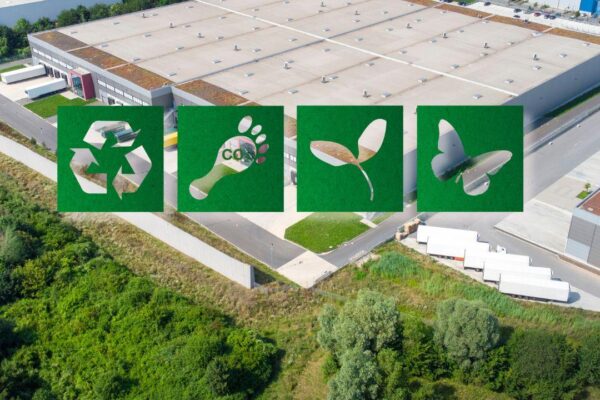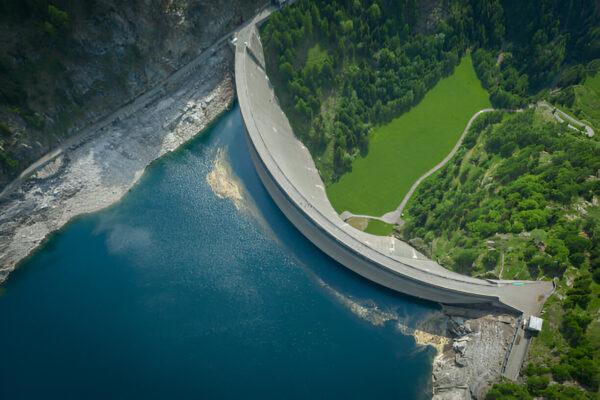Indonesia, an archipelago rich in biodiversity and natural resources, faces a significant challenge in balancing economic growth with environmental sustainability. As one of the world’s top greenhouse gas emitters, Indonesia’s efforts to reduce emissions are crucial for global climate goals.
Carbon credits have emerged as a promising mechanism, allowing the country to monetize its vast forests and renewable energy potential while advancing its green agenda. According to Indonesia’s Ministry of Environment and Forestry, the country aims to reduce its greenhouse gas emissions by 31.89% independently and 43.20% with international assistance by 2030. Carbon credits can be a critical tool in achieving these targets, aligning environmental stewardship with economic benefits.
This article will further discuss carbon credits as one of Indonesia’s efforts to create a sustainable environment.
Read other similar articles : How Business Contribute to SDG 13: Climate Action
Carbon Credits Potential in Indonesia
Carbon credits is actually not a whole new concept, it was introduced in 1997 with the Kyoto Protocol, then rapidly became more well-known as global awareness of environmental issues grew. Carbon credits represent a permit allowing the holder to emit one ton of carbon dioxide or equivalent greenhouse gases. Companies or countries that emit less than their allowance can sell the surplus credits to others, fostering a market-driven approach to emission reduction.
Indonesia’s carbon credit market holds immense potential. With approximately 120.6 million hectares of forests acting as carbon sinks, Indonesia could generate significant revenue through carbon trading. Estimates suggest that Indonesia’s carbon market could be worth up to USD 82 billion by 2030. The establishment of the Indonesia Carbon Exchange (IDXCarbon) in 2023 further demonstrates the government’s commitment to developing a regulated carbon trading ecosystem.
Carbon Credits Regulation in Indonesia
One of the key regulations of carbon credits in Indonesia is Presidential Regulation No. 98/2021, which provides a comprehensive legal framework for carbon pricing. This regulation ensures that carbon trading activities are aligned with Indonesia’s national emission reduction targets, helping the country meet its climate commitments. The regulation also outlines mechanisms for carbon trading, carbon offset projects, and emission reduction certifications, providing clear guidance for businesses to participate effectively.
According to the Indonesian Chamber of Commerce and Industry (KADIN), the number of businesses that integrate carbon trading into their sustainability portfolios are becoming higher. This growing interest reflects an increasing awareness among businesses of the importance of transitioning to low-carbon operations. As regulations continue to evolve, the carbon market in Indonesia is expected to expand, presenting new opportunities for the private sector to contribute to national and global climate goals.
Corporate Involvement in Carbon Credits
Nowadays, businesses in Indonesia are increasingly integrating carbon credits into their sustainability strategies. Large corporations, particularly in the energy, forestry, and agriculture sectors, recognize the dual benefits of reducing emissions and generating revenue.
For instance, PT Pertamina, Indonesia’s state-owned oil and gas company, has invested in carbon offset projects such as reforestation and renewable energy initiatives. These projects have the potential to offset up to 29 million tons of CO2 annually. Similarly, companies like APRIL Group and Astra Agro Lestari have adopted sustainable land management practices to reduce emissions and generate tradable carbon credits.
Economic and Environmental Benefits

The potential economic benefits of carbon credits for Indonesia are substantial. The World Bank estimates that Indonesia could potentially earn billions of dollars from carbon trading by 2030 if it optimizes its carbon credit mechanisms. These revenues could be reinvested in sustainable infrastructure, renewable energy, and community development projects.
From an environmental perspective, the impact is equally significant. By fully leveraging carbon credit opportunities, Indonesia could reduce its annual greenhouse gas emissions by up to 300 million tons by 2030. This reduction would contribute significantly to meeting Indonesia’s Nationally Determined Contributions (NDCs) under the Paris Agreement.
Challenges and the Road Ahead
Despite the promising potential, Indonesia faces several challenges in fully realizing the benefits of carbon credits. Such as limited technical capacity, and the need for robust monitoring systems are key barriers. Ensuring transparency and accountability in carbon trading is essential to build trust among investors and stakeholders.
Furthermore, aligning national and international standards for carbon credits remains a complex task. Indonesia must ensure that its carbon credit mechanisms are compatible with global frameworks such as the Verified Carbon Standard (VCS) and the Gold Standard to attract international investors.
After all, Indonesia’s journey toward a greener future is intrinsically linked to the effective utilization of carbon credits. For companies and businesses who aim to integrate the carbon credit into their environmental initiatives, it has become do-able with the support of government and the wider community. Especially now we have Satuplatform.com as an all-in-one solution who provides you with carbon consultancy. Try our FREE DEMO now!
Similar Article
Low GHG Emission, High Impact: Everyday Materials That Could Reshape Green Manufacturing
The shift toward sustainable production practices has spurred growing interest in low-carbon materials that support greener industrial processes. Emerging materials,…
Does “Eco-friendly” Labels Mean Green Product in Green Industry?
Businesses and consumers alike are navigating a flood of products claiming to be “eco-friendly” or “green.” These labels, often used…
Dilema Biomassa: Transisi Energi Berkelanjutan atau Perusakan Lingkungan?
Dalam upaya mencapai target net-zero emission pada 2060, Indonesia mendorong transisi energi dari bahan bakar fosil ke sumber energi terbarukan.…
Energi Terbarukan di Indonesia: Mengapa Surya dan Hidro Menjadi Pilihan Utama?
Sebagai negara kepulauan terbesar di dunia, Indonesia menghadapi tantangan besar dalam memenuhi kebutuhan energinya. Di tengah komitmen untuk mencapai net…
Emisi Karbon Penerbangan Meningkat: Tantangan Baru bagi Industri Aviasi
Emisi Karbon Sektor Penerbangan Setelah mengalami penurunan drastis selama pandemi COVID-19, industri penerbangan global kini menunjukkan pemulihan yang signifikan. Namun,…
Adaptasi Bisnis di Era Krisis Energi
Pasokan bahan bakar menjadi semakin terbatas, dengan harga yang melambung tinggi, merupakan salah satu bukti bahwa dunia sedang mengalami krisis…







